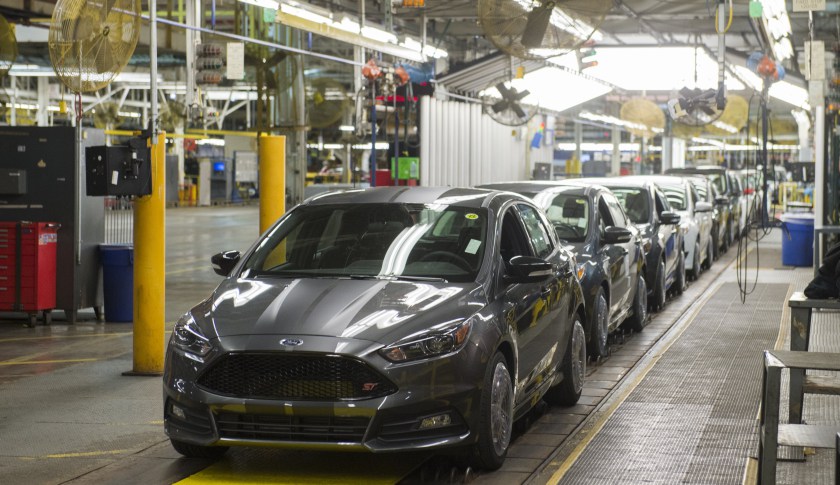Canada is slipping behind Mexico as top exporter to the United States.
The US Commerce Department released new trade statistics this month that show the US imported $245bn (£194bn) in goods from Mexico in the first 10 months of 2016.
The US imported $230bn (£182bn) worth of goods from Canada over that same period.
In 2015, Canada and Mexico were tied in exports to the US.
The shift in trade comes as President-elect Donald Trump prepares to take office in January.
During the US presidential election campaign, Mr Trump said he wanted to renegotiate the 1994 North American Free Trade Agreement (Nafta) between the three countries and threatened to impose tariffs on Mexican-made goods.
The real estate mogul said US companies which moved jobs abroad would be charged “a 35% tax when they want to ship their products back into the United States”.
Mexico’s jump in the trade relationship with the US is being driven by the automotive industry. The Big Three automakers, Ford, General Motors and Fiat Chrysler, all have a presence there.
The manufacturing sector in general, as well as the financial services sector, is also attracting foreign investment.
Canada is losing out on auto investments to countries like Mexico that offer better incentives, like lower wages, to companies.
In 2015, Canada manufactured just over 2.2 million vehicles. Auto factories in Mexico produced 3.5 million vehicles, and forecasts indicate that will increase to 5 million by 2020.
It’s a number that Flavio Volpe, president of Canada’s Automotive Parts Manufacturers’ Association, calls “an extraordinary amount”.
“We aren’t the growth market in North America, Mexico is,” he said.
Bernard Wolf, from York University’s Schulich School of Business, agreed. He said that even if Canada climbed back to the top spot by the end of the year “we’re not going to stay there”.
Mr Wolf said Mexico’s competitiveness has been hampered by factors that include organised crime and corruption. But government reforms initiated in 2014 aimed at improving competitiveness, as well as infrastructure funding, are helping the country fulfil its economic potential.

A lineup of Ford Focus vehicles on an assembly line in Wayne, Michigan. (Photo: SAUL LOEB/AFP/Getty Images)
Canada continues to struggle with productivity growth rates that lag behind other major industrialised nations.
Experts say it is too early to tell what impact Mr Trump’s administration will have on North American trade.
“I think everybody in the industry should wait until we have something to react to on Nafta,” said Mr Volpe.
Laura Dawson, director of the Wilson Center’s Canada Institute, said she doubts the “doomsday scenarios” people are concerned about are likely to happen. She believes the North American supply chain is too integrated for Mr Trump to easily follow through on his harsher policy proposals.
“When you put up a tariff or a punitive tax it’s like putting a wall down the centre of a factory,” she said.



